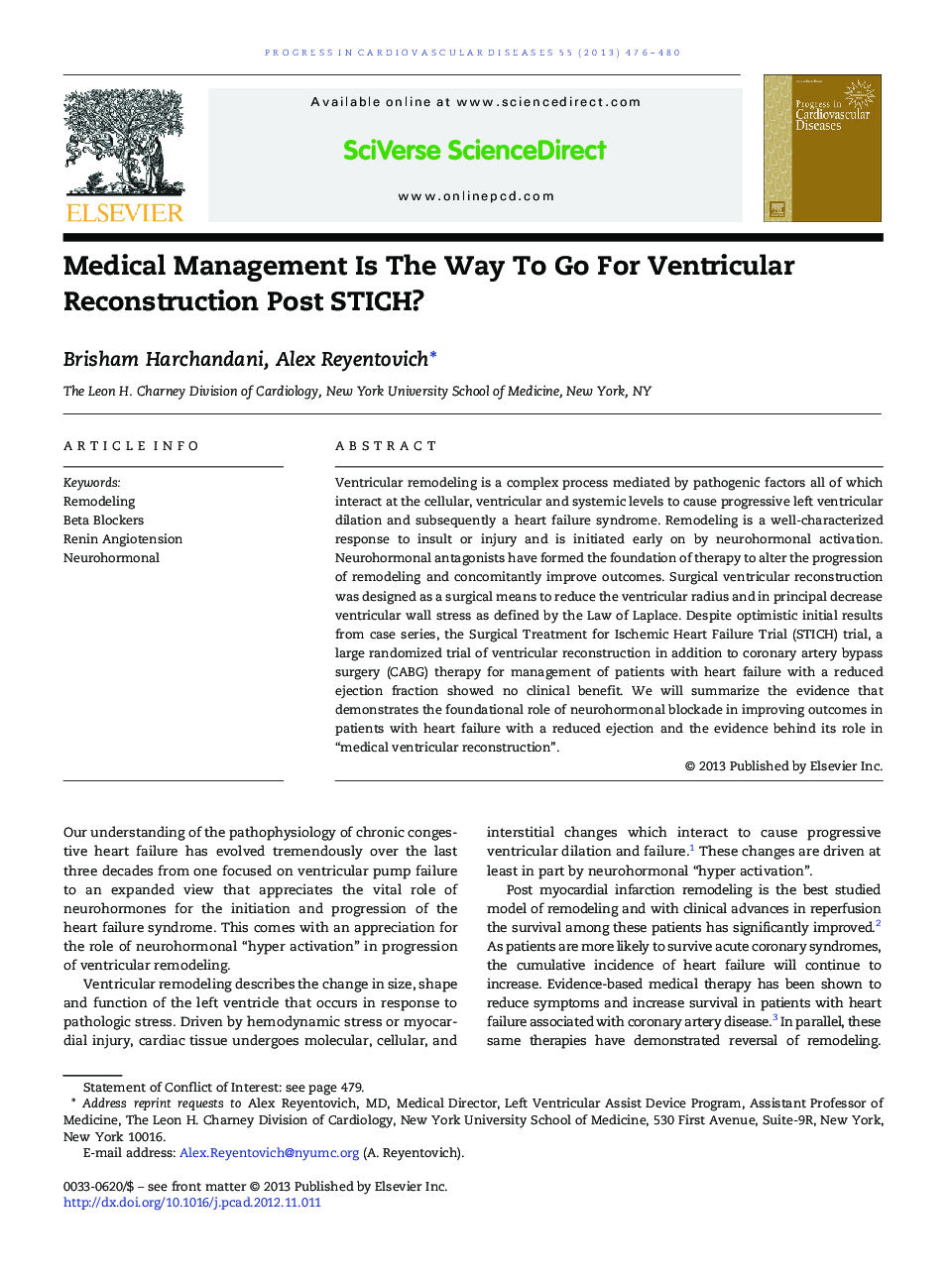| Article ID | Journal | Published Year | Pages | File Type |
|---|---|---|---|---|
| 3006702 | Progress in Cardiovascular Diseases | 2013 | 5 Pages |
Ventricular remodeling is a complex process mediated by pathogenic factors all of which interact at the cellular, ventricular and systemic levels to cause progressive left ventricular dilation and subsequently a heart failure syndrome. Remodeling is a well-characterized response to insult or injury and is initiated early on by neurohormonal activation. Neurohormonal antagonists have formed the foundation of therapy to alter the progression of remodeling and concomitantly improve outcomes. Surgical ventricular reconstruction was designed as a surgical means to reduce the ventricular radius and in principal decrease ventricular wall stress as defined by the Law of Laplace. Despite optimistic initial results from case series, the Surgical Treatment for Ischemic Heart Failure Trial (STICH) trial, a large randomized trial of ventricular reconstruction in addition to coronary artery bypass surgery (CABG) therapy for management of patients with heart failure with a reduced ejection fraction showed no clinical benefit. We will summarize the evidence that demonstrates the foundational role of neurohormonal blockade in improving outcomes in patients with heart failure with a reduced ejection and the evidence behind its role in “medical ventricular reconstruction”.
